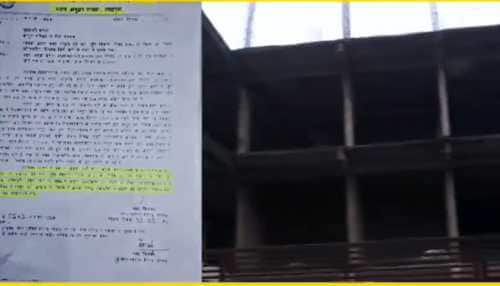- News>
- India
Exposed: How Waqf Board Captured Prime Land In Bhopal And Built Shopping Complex Within Days

In today`s DNA, Zee News uncovered a series of shocking revelations about the Waqf Board`s controversial land claims, raising serious concerns about its alleged encroachment on historical and government properties.
Amid the debate over the Waqf amendment bill, Zee News has launched a campaign against the lofty claims of the Waqf Board, through which we are revealing the ground reality of Waqf's illegal claims over Hindu and public properties in our DNA segment. Today, we will show you how the Waqf Board has also staked its claim over historical heritage sites, many of which predate the existence of Islam.
In today;s DNA report, you will see an exclusive copy of a document from the Delhi Waqf Board, in which it claims ownership of 156 properties in Delhi that are protected by the Archaeological Survey of India (ASI), alleging that the ASI has illegally occupied these properties.
At serial number 90 of this document, the Delhi Waqf Board claims that the world heritage site, Humayun's Tomb, is its private property, even though this historical monument is protected by the ASI.
Watch Full DNA Report Here
Additionally, at serial number 122, the Waqf Board claims ownership of the Quwwat-ul-Islam Mosque within the Qutub Minar complex. Not only that, but the Waqf Board also claims the ancient Ashoka Pillar in the Qutub Minar complex as its property.
Now, let’s show you another case involving the Waqf. This massive building is the Waqf Complex, constructed on government land that the Waqf encroached upon. However, the Tehsildar Court in Bhopal has taken strict action against the Waqf in this matter. The court’s order clearly states that the Waqf encroached upon 27,000 square feet of government land in the heart of the city and carried out illegal construction. The land alone is worth over ?30 crore.
The court has now ordered that the Waqf Board must pay 20% more than the current market value of the government land on which it built. Additionally, the Waqf Board must bear the cost of demolishing the illegal construction on the government land.
